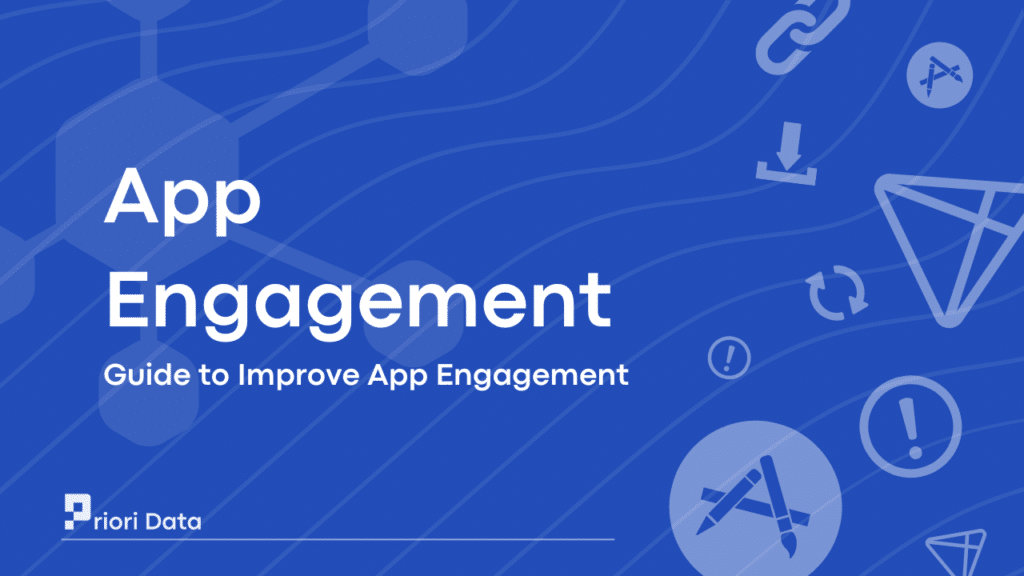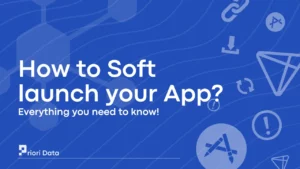App engagement refers to how involved and active users are with a mobile application. It’s all about how much time they spend using it and how often they use different features within the app.
Why is it so important? Well, think about it this way – app engagement gives us an idea of how well an app is performing and how happy users are with it. If people are using an app a lot, spending lots of time on it, and regularly utilizing its features, it’s a pretty good sign that they find it valuable and will keep using it.
On the other hand, if people aren’t using the app much, it’s a red flag that they might not be finding it useful and might eventually stop using it.
So, by paying close attention to app engagement and making improvements, app developers and companies can make sure that their app is providing a great user experience and meeting the needs of its users.

Five Strategies For Improving App Engagement
Here are five key strategies for improving app engagement:
Personalization
Have you ever used an app that felt like it was tailored just for you?
That’s what personalization is all about. By adjusting the app experience based on a user’s preferences and behaviors, you can make the app more relevant to each person. This means they’ll be more likely to use the app and keep coming back for more.
User Onboarding
When you download a new app, it can be overwhelming to figure out how to use it. That’s why user onboarding is so important. It’s all about introducing new users to the app and showing them the ropes. By making it easy for people to understand the app’s value and get started using it, you can increase engagement from the get-go.
Push Notifications
Have you ever gotten a notification from an app you haven’t used in a while? That’s what push notifications are. They’re alerts that show up even when you’re not actively using the app. Used well, push notifications can be a powerful tool for keeping users engaged. But be careful – too many irrelevant or untimely notifications can be annoying.
In-App Rewards
People love feeling rewarded, and that’s exactly what in-app rewards can do. By offering incentives for certain actions within the app, like making a purchase or referring a friend. You can encourage people to keep using the app. This leads to increased engagement and a better user experience.
App Updates
Finally, regular app updates can make a big difference in engagement. New features, bug fixes, and performance improvements can keep users interested and coming back for more. Plus, updating the app shows users that it’s still actively supported and being developed. Which can increase trust and engagement.
Consider This: Essential Factors for App Engagement
When it comes to app engagement, there are three key things to consider: user feedback, user personas, and user data. To get the most out of these considerations, you might want to use some helpful tools and software.
First, let’s talk about user feedback. It’s important to know what your users think about your app so you can make improvements where needed. Tools like SurveyMonkey, Typeform, and Qualtrics make it easy to create surveys and get feedback from your users. By regularly checking in and gathering this information. You can get a better understanding of what your users love and what they would like to see change.
Next up, user personas. These are fictional characters that represent different types of people who use your app. By creating user personas, you can get a deeper understanding of your target users and what they need from your app. Tools like Xtensio and MakeMyPersona can help you create these personas based on research and data.
Finally, user data is incredibly valuable in understanding how people are using your app. Tools like Google Analytics, Mixpanel, and Amplitude provide mind-blowing data on user behavior, usage patterns, and engagement. By analyzing this data, you can identify trends and patterns, which can guide your app engagement strategies.
F.A.Q
Q1. What is good app engagement?
Ans. Good app engagement means users are actively and frequently using a mobile or web app, spending a lot of time on it and utilizing its features. This indicates user satisfaction and app success, and can be improved through personalization, user onboarding, push notifications, rewards, and app updates.
Q2. How is app engagement calculated?
Ans. App engagement is measured by metrics such as active users, session length, screen views, retention rate, and conversion rate. These metrics are collected and analyzed using analytics tools to provide insights into user behavior and app performance. By regularly monitoring these metrics, developers can understand the success of their app and make improvements to increase user engagement.
Q3. What are app engagement campaigns?
Ans. App engagement campaigns are efforts to boost user interaction and involvement with a mobile/web app. Tactics like personalized messaging, in-app rewards, and push notifications are used to increase usage and improve user experience. Effective campaigns lead to better user retention and app success.
Q4. What are the 4 types of engagement?
Ans. The four types of engagement are emotional, intellectual, physical, and behavioral. Emotional engagement refers to the feelings a user has towards an app, intellectual engagement involves challenging users mentally, physical engagement involves the use of body movements and behavioral engagement refers to the actions users take within the app. Understanding and enhancing these types of engagement can lead to increased user satisfaction and loyalty.
Conclusion
When it comes to creating a successful app, it’s crucial to pay attention to how engaged users are with it. App engagement gives us an insight into how well an app is performing & how satisfied users are with it.
Improving app engagement can be done by personalizing the app. Making the onboarding process easier, using push notifications, offering in-app rewards, & updating the app frequently. To gain a deeper understanding of your app’s engagement. It’s important to listen to user feedback and understand who your target users are. And track their behavior through tools like SurveyMonkey & Google Analytics.
By focusing on app engagement & constantly making improvements, app developers & companies can ensure their app provides a fantastic user experience & keeps users happy.





